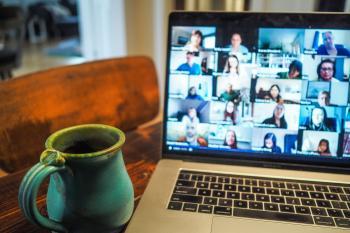
Bill Drayton, the founder of the Washington DC-based Ashoka social enterprise network, told me a few years ago, in an interview for The Guardian, that empathy is the number one quality of good business leadership. He meant empathy towards employees, customers, business partners, suppliers, shareholders and the wider community; empathy towards the preservation of creation for the sake of future generations.
It’s easier said than done. If a business faces collapse and closure it may have no choice but to reduce its headline cost of employee wages. Some redundancies may be inevitable, unless everyone is ready to take a pay cut, including in the boardroom. This is a challenge especially for SMEs (Small and Medium Sized Enterprises). And too few board members in big corporations demonstrate that kind of empathy.
The Mumbai businessman Vivek Asrani tells how he helped out a competitor by supplying him with a vital component to allow his business to survive. Asrani might have been happy to see his competitor go out of business. But he felt it was the right thing to do for the sake of saving the jobs of his competitor’s employees. Empathy in action.

Empathy in our workforces
Of course, it's not just business leaders that can leverage empathy for the greater good. Healthcare workers, often working under exhausting pressure, have courageously and heroically put themselves in harm’s way for the sake of their dying Coronavirus patients. Who else to better convey how empathy makes a difference in their work; not just empathy in the healthcare worker-patient relationship, but also empathy in the public’s regard for health care workers themselves?
There are other sectors where the potential for empathy as a result of COVID-19 are enormous. Zoom conference calling has become commonplace and now video conferencing presents a special opportunity for empathy, especially in the workplace. Video calls often provide a glimpse into the lives of colleagues and managers and can enable a stronger bond within teams.
'Empathy and trust are intimately linked features of human connection. When people feel their workplace is transactional, zero-sum and competitive, they lose trust in the organization, grow cynical about their colleagues, and act less cooperatively themselves,’ said Jamil Zaki, professor of psychology at Stanford University in a recent interview for the Edelman Trust Barometer. ‘By contrast, when individuals feel supported and understood, they see workplaces as cooperative. This becomes a self-fulfilling prophecy, as people then behave more cooperatively as well.'
Empathy for our environment
Another area that has been impacted by COVID-19 inspired empathy is our environment. The pandemic has greatly improved air quality due to less road traffic and industrial pollution, saving thousands of lives. By the end of April, this had led to 11,000 fewer deaths in the UK and other European countries, according to a report in The Guardian. This nowhere near offsets the number of lives lost due to the pandemic. But the trend has been in the right direction, nonetheless. This is now threatened as car traffic increases while people try to avoid public transport.
In Chinese and Indian cities which have experienced lockdowns, there has also been a dramatic improvement in the air citizens breathe, with the number of health damaging particulates falling, according to China’s Air Quality Indices.
Tackling the pandemic ‘has also led to large improvements in air quality,’ says Marshall Burke, an earth system science professor at Stanford University. ‘These improvements have additional benefits for our health…. When you clean up the air, you see a reduction in mortality.’ Burke calculates this will translate into 50,000 fewer premature deaths over time in China alone.
What comes next?
Showing empathy is not just good during a pandemic, when we’re in a state of crisis; empathy is good for the long-term as well. The COVID-19 pandemic has changed our lives and ways of doing things dramatically. It has brought out the best in human nature as we face this crisis as one.
We all, as citizens, need to act with empathy in all aspects of our lives; in the community, towards neighbours, the unemployed, the dispossessed, the bereaved and the suffering.
A little empathy goes a long way, and it's a long road ahead.
(For how to support young entrepreneurs, see also: https://www.finimpact.com/
This article was first posted on the website of Initiatives of Change International www.iofc.org on 30 July 2020.
